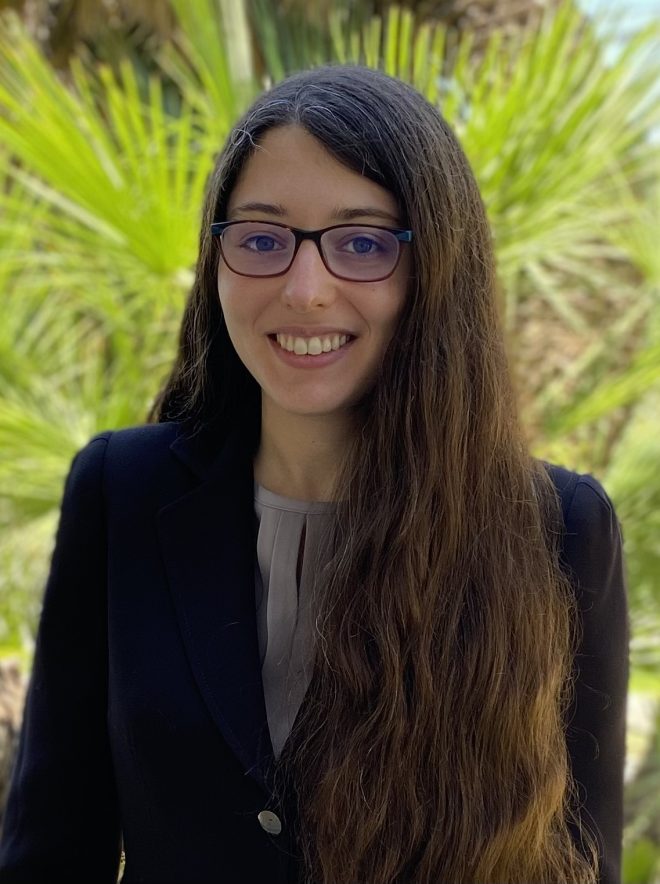Cast of Wonders 559: Libricide
Libricide
by Rachel Linton
When he woke, the air tasted of ash.
For a moment, he contemplated not getting up. There was a physical weight to smoke-filled air that went beyond the actual density of the particles. It crushed him; his throat closed up beneath it. It was never a good day when a neighborhood of ideas was consumed by fire.
Then he sighed and rolled out from beneath the duvet. He washed, dressed, and retrieved his cane. The cane was topped with a delicately carved tablet and scroll over a globe, the wood of the grip brightly burnished with long use.
He limped out to the porch and gazed up. The rising sun burned gloriously red in the haze.
He sat heavily, and he waited. He did not have to wait long.
“Alex!”
It was his sister. “Angel.”
Angel came up the steps to sit beside him; they turned to yellow stone beneath her sandals in acknowledgement. Alex and Angel did not look related. Angel’s hair was graying, but her skin was clear, and though she had the stoutness of an older woman she moved with the energy of youth. Alex’s limbs had the ungainly length of a teenager still growing into himself, but he moved like an old man. His skin was an incomprehensible patchwork of grafts, a thing destroyed and reconstructed.
“Who do you think it is?” she asked. “Vern in Kyiv?” When he didn’t answer, she tried again. “Anna Amalia?”
“Anna,” Alex mused. “I hope not again so soon.”
“They’ll come here,” she said. “They always come to you.”
“I know,” he said. The smoke stung his eyes.
“Do you mind it?” Angel asked. Her left hand had a few scars of its own, and she reached over and hooked it around Alex’s bad knee, old wound on old wound.
“I mind the burning,” Alex said. “Not that they come to me. I remember what it’s like.”
She sighed softly and patted his leg. “Me too. But you were alone?”
“Yes.”
“I’m sorry,” she said.
“Someone had to be first.”
When she arrived, it was all at once: a flurry of brown curls, and worn sneakers that turned Alex’s stone steps to weathered wood as her idea of a porch overlapped with his. It was Vi, a heat coming off her from something besides the central California summer. She hurled herself into Alex’s arms.
“It hurts,” she sobbed. “Why do they do this?”
Her hair and clothes reeked of smoke. Her skin was still intact, but her hair was beginning to go, strands crumbling and leaving a fine ash dusting her shoulders like snow.
“Because it hurts,” Wro said. They had followed their little sister, or maybe simply been lurking by Alex’s porch in anticipation of her arrival. They leaned on the railing, blond and scowling, their pale skin pinking in the sun. The row of white columns flickered to wrought iron beneath their elbow. “Only because it hurts. There’s no other reason. No good reason.”
“That’s not true,” Angel said.
“It is sometimes true,” Alex acknowledged. “But more often, they just want to see us gone.”
“Sometimes it’s an accident.” Angel’s voice was soft. “And sometimes they’re just afraid.”
“Your arsonist just wanted attention.” Wro’s scowl deepened. “Too bad he got it.”
“Easy for you to stand here now, telling her how to react.” Angel said. “When the bombs fell, you came to Alex, too.”
They shrugged again and looked down at the stone steps, which melted into functional concrete beneath their glare—stark compared to Angel’s more subtle impact, which left Mediterranean revival chipping away at actually-Mediterranean. Vi was too scattered to exert much of an influence at all—only directly beneath her did the steps occasionally take on a vinyl finish, which flickered in and out of existence almost as though it were melting.
“It’s still spreading,” Vi whispered into Alex’s ear. “Shouldn’t it have stopped by now? If there was going to be—anything left of me?”
Alex shifted so that Vi wasn’t half-falling off the step, propping her against his chest. “It’s different every time,” he told her, deliberately not looking at Wro. “History never repeats itself—”
“—but it does often rhyme,” Wro cut in.
“I burned for almost a whole day once.” Angel waved her burned hand at them, though Vi wasn’t looking. “Still here.”
“I stayed open while the bombs were falling,” Wro said. “But you’re much littler, so who knows.”
“I think you’ve said your piece.” Alex wiped a smudge of soot off Vi’s face with his thumb. “Go home, Wroclaw.”
Wro rolled their eyes and stomped down the porch steps, turning up the sidewalk towards their house.
“I’ll go after them,” Angel said. “Call me if you need me, okay?”
Alex nodded.
Angel squeezed his knee again and rose. “Good luck, little sis.” There was a flash of warm, dry air and the roar of cars in her wake. As she passed, all the cypress on the street turned to palm trees.
Alex brushed Vi’s hair back, ignoring the film of ash that stuck to his fingers. Her body was getting hot against him, skin reddening.
After another minute or two, Vi said, “They’re right,” in a hollow voice. She sat up a bit, swiping at her tear-streaked face. “There’s not that much to lose.”
“You’ll be alright.”
“I already feel empty,” she said.
“Just sit.” With the others gone, Alex’s house returned to the way he always thought of it, stone so old that only memory kept it whole. Vi’s fingertips brushed at the edge of the step, but it did not change beneath her touch.
“Filled up with smoke, and when I look for the words—”
“I have words for you.”
“They won’t help.”
“They might.”
She looked at him. He looked back. She was so, so young—one of the Carnegie generation, vinyl floors and polyester carpet. He swallowed down the taste of melting plastic.
“We’ve got one damn thing the phoenix never had…” Alex began.
Vi held his gaze, and Alex didn’t stop, voice never letting up once, line after line, drifting from book to book too quickly for her to sort through her catalogue and see if she knew it—if she still held it, if she ever had. He drifted from English to Tibetan to Arabic, poetry to hymn to nonfiction, Longfellow to Chokle Namgyel to forests regrowing after a fire.
Her clothes caught in moments, then went out. Her hair smoldered and then soaked through, the flames and the firehoses doing battle across her. Through it all, Alex kept going, ignoring the growing ache in his throat.
Just past noon, she sighed, and went boneless in his arms. “It’s out,” she sighed. “It’s all out.”
“Good,” Alex said. The tension left his body, then. He took a deep breath, his first of that morning, and it felt like the smoke already hung less heavy in the air. Then it began to rain, the droplets melting into existence beneath the cloudless sky.
Vi was quiet for a moment. Then she said, “You were right. The words helped.”
“They wouldn’t burn them if they didn’t.”
“All the biographies are gone,” she mourned. “Everything that’s not in English. My atlases, my travel books, my maps, all gone.”
“What’s left?” he asked.
“The magazines are gone. The history—if it’s not burned it’s soaked through—all my poetry…”
“Don’t mourn,” he said. “Tell me what you still have.”
“How can I not mourn?” she demanded.
He scanned his catalogue for the right words, pushing past the sensation of tripping and catching himself that always came when he reached for the books: the thought, still, that they might be gone.
But they were there, of course—in new scripts, in even print instead of looping hand, but there nonetheless. There were Zenodotus’s old favorites, the Homeric poems, now in half a dozen translations; new stories and all the old stories in fresh guises, reincarnated from the ashes along with the library that held them. And there, in all of it, was what he wanted to say. “By counting our stock…The missing plays of Sophocles will turn up piece by piece, or be written again in another language.”
She frowned, thinking hard, and then her eyes lit. “PR6069.T6A84 1993,” she said. “Arcadia by Tom Stoppard.”
“See?” he said. “You still have it.”
“Do you think it’s true?” she asked.
“That it will all come back?” Alex asked. She nodded into his chest. “I don’t know. Some of it has.”
“They’ll never stop burning us, will they?”
“They haven’t yet.”
“Then why?” Vi’s voice was soft and plaintive as she tipped her head up to look at him. Her hair hung in damp clumps against her face; as she spoke, the smell of burning plastic returned, mixing with the damp must of the rain. “Why keep going?”
“Because they haven’t stopped rebuilding us, either,” he told her, and as he pressed his hand into hers she got a glimpse of stone stretching over sea, pillars, shelves and shelves, half of them empty. New concrete over ash and dust. Glass and pages and room to grow.
“It’s all new,” she said. “There really was nothing left of you, wasn’t there?”
“There was ash,” Alex said, the words scraping his throat. “And memory.”
She finally drew back, turning away from Alex to look up at the burnished red sky. “Will they remember what was done to me?” she asked, in a voice small enough it was almost lost to the air.
“They’ll remember,” he promised.
“Are you sure?” she asked.
“Oh, yes,” the Library of Alexandria answered. “They’ll write books about it.”
About the Author
Rachel Linton

Rachel Linton (she/her) is a playwright, poet, and law student at the University of Chicago. Her poems have previously appeared in Cathedral Canyon Review, Queer Toronto Literary Magazine, The Quarter(ly), Emerge Literary Journal, and Strange Horizons, among others. “Libricide” is her first short fiction publication. You can find her online at rachellinton.com.
About the Narrator
Jason Arquin

J.S. Arquin is a writer, voice actor, audiobook producer and narrator, podcaster, entertainer, and adventurer. He has lived in beautiful, inspiring, and disturbing places all over the world, and currently makes his home in Portland, OR, where he dodges raindrops on his bicycle and sometimes writes about himself in the third person. His fiction has appeared in Plasma Frequency, The Best Vegan SFF of 2016, and Digital SF, among others. He has produced over a dozen independent audiobooks, and his narrations have been featured on Escape Pod, Cast of Wonders, and Starship Sofa. You can catch his ramblings and some breathtaking speculative fiction on his podcast, The Overcast. www.theovercast.libsyn.com.



